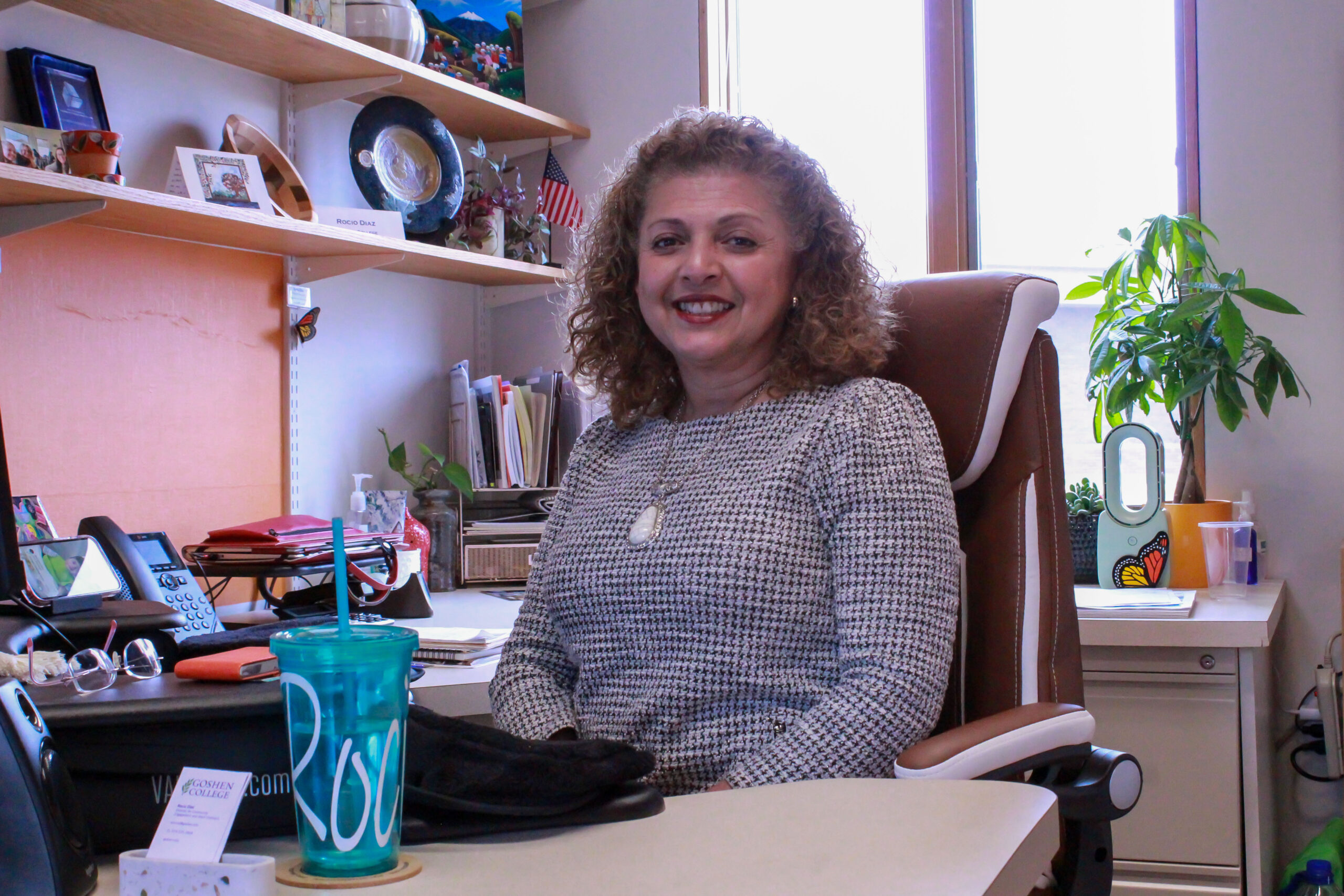“I want to share my story. I want others to not struggle, and to have the support that I didn’t have” — that’s how Rocio Diaz describes her work at Goshen College.
Diaz is the director of community engagement and adult outreach, working for the school’s Center for Community Engagement (CCE).Her job description is extensive and has evolved significantly over the past few years.
After moving from Texas, Diaz began working for GC as an administrative assistant for the Center of Intercultural and International Education on Feb. 13, 2008 — an important date to Diaz. “I have it written down,” she said with a smile.
Diaz has two daughters who both attended GC, graduating in 2010 and 2013. “They actually graduated before I did,” she chuckled — Diaz graduated with a degree in organizational leadership in 2014.
With both of her daughters being first-generation college students, Diaz said that she quickly realized that she hadn’t understood the importance of college or the demands it puts on a student’s family.
And so Diaz began working with Latino families to help them through the college process, often working with 30 or more families each semester. She would explain to parents that students might have two or three hours of outside work for each hour of class, the importance of attending events on campus and more, along with working on financial aid issues.
Diaz also held meetings with professors “so they would understand the positions these students are in.”
“It’s not that they’re procrastinators,” she said, “it’s not that they’re lazy; they come to college and do their work, but then they go home and they’re the ones that need to assist Mom or Dad. They need to watch their siblings. Sometimes [their parents] don’t speak English, so they have to take their sibling to the dentist.”
That was one of the major roadblocks Diaz saw — when students’ families don’t speak English, it can place a burden on the student. Thus, Diaz started adult English classes at Goshen.
“In trying to help those students,” she said, “we thought that they’re trying to help their families, their parents. So why don’t we start providing some classes so the parents can actually learn English?”
In the fall of 2015, Diaz helped GC begin offering adult classes.
At that time, she said, the program had somewhere between 35 and 50 students.
This semester, 220 students are enrolled — with 122 more on a waiting list for next semester.
Part of the reason for the program’s success is that one semester of classes costs $200 to attend, which includes three two-hour classes a week.
“It’s not just Latinos,” Diaz said. “Students speak five different languages.” They are also from a myriad of different places — this semester, twelve different countries are represented, including Belarus, Ukraine and Venezuela.
She said that students also have a variety of educational backgrounds; while some only went to school through third grade, others have masters or technical degrees.
Now that the adult classes are running, Diaz says that the CCE is branching out their English education.
“Last year, we started summer camps for K-12 students in our community,” she said. “I came up with the idea of having English classes for [high school] students that just recently came to the States.”
Not only do these summer camps give an overview of English, but Diaz says that they take students around the Goshen area and show them local staples, such as the South Side Soda Shop.
“To me, it’s intimidating to go to any place that I’ve never been to before on my own,” Diaz says. “We’re helping the students acculturate a little bit.”
This past year, along with the English camps, Diaz also helped Goshen secure its status as a Hispanic-Serving Institution, guaranteeing the school additional funding.
She said, though, that this label means the school has a responsibility — according to her, some institutions “produce” Latino students, and some “serve” them — and Goshen needs to focus on the service.
“Now that we carry that title,” she continued, “I think that we have the responsibility to learn how we’re going to be most effective … We talk a lot about inclusivity and service and diversity, and we do it because the passion is there and the intention is there. So now, how can we work together to accomplish what we want to do?”




